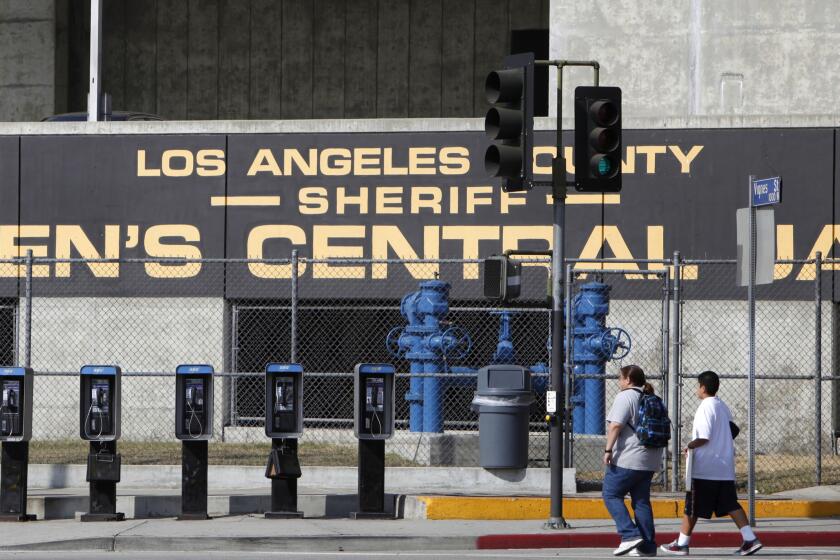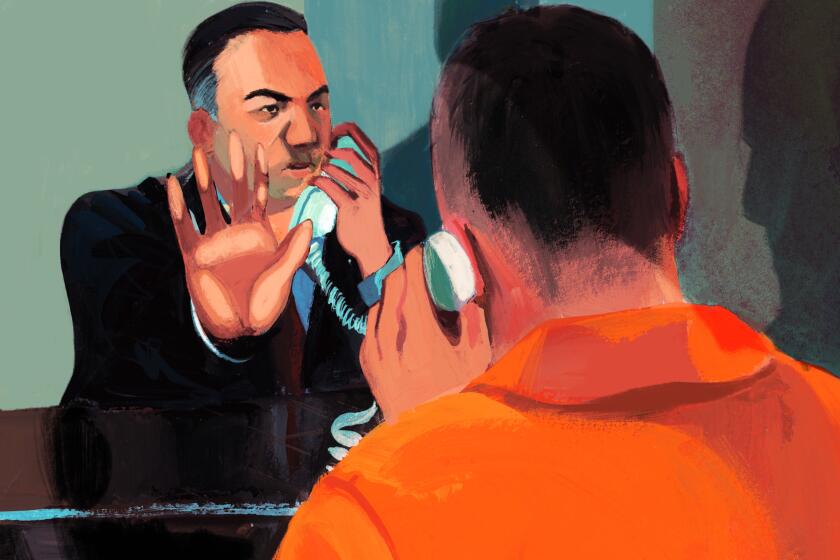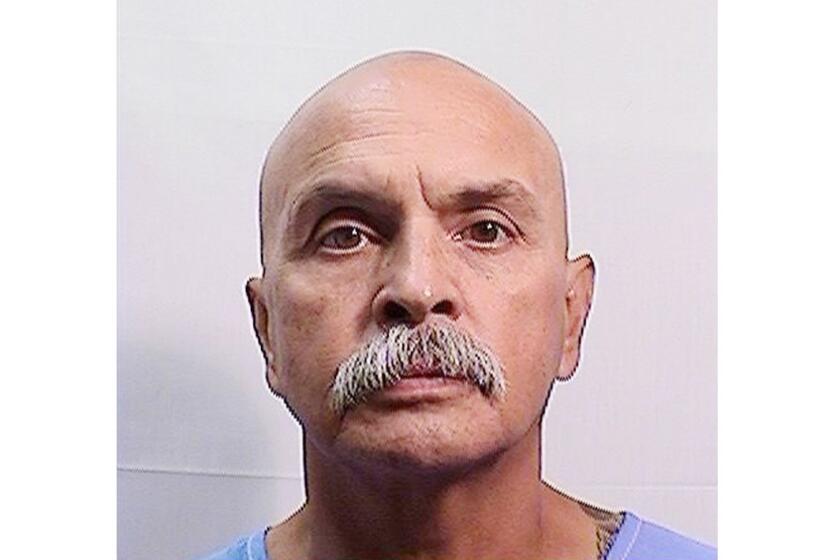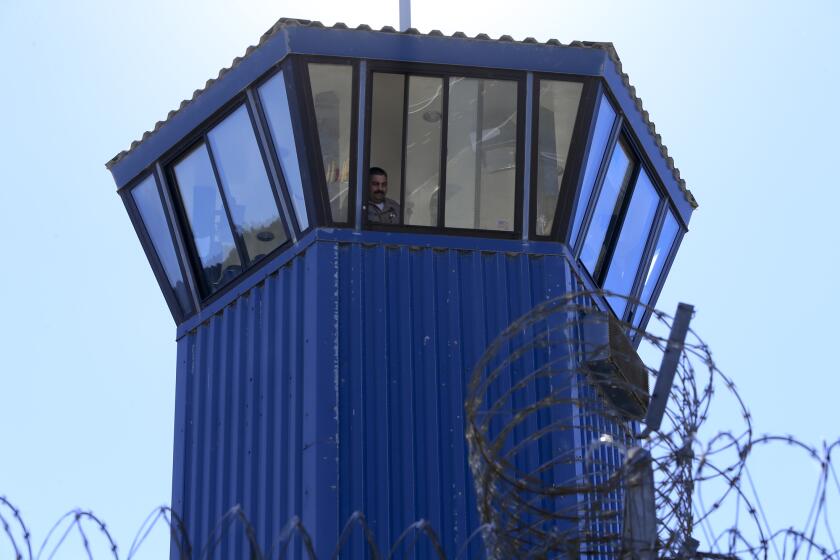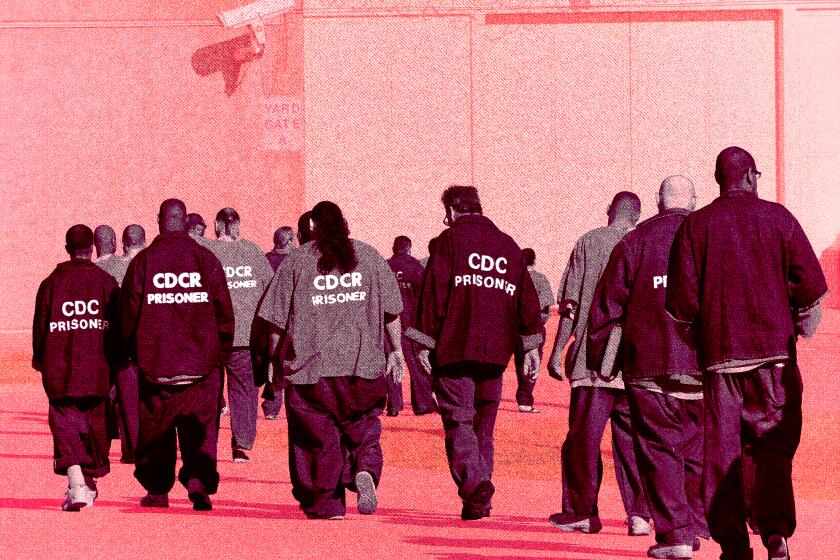Mexican Mafia member who ran county jail rackets is killed in prison
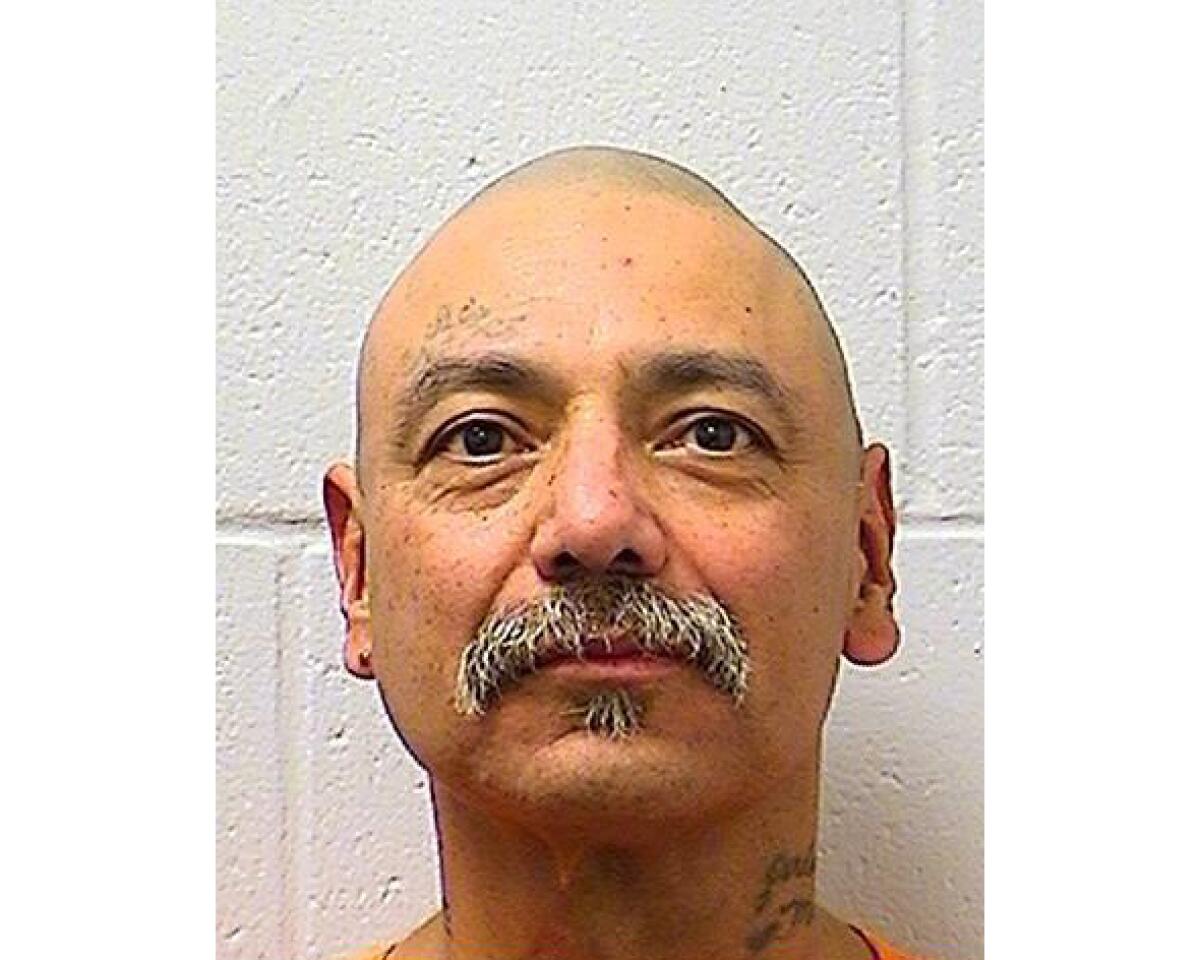
Michael Torres, a Mexican Mafia member who oversaw gangs in the San Fernando Valley and controlled drug and extortion rackets in the Los Angeles County jails, was stabbed to death in prison Thursday, authorities said.
Torres, 59, was attacked around 9 a.m. at California State Prison, Sacramento, where he was serving 133 years to life for attempted murder, conspiracy, weapons offenses and witness tampering.
Prison officials identified the assailants as Ray Martinez, 49, and Juan Angel Martinez, 47. The men, who are not related, are both serving life in prison for murder and other crimes. Ray Martinez is a Mexican Mafia member nicknamed “Cisco,” according to law enforcement sources.
It’s unclear why Torres was killed, but he made many enemies in his climb from the streets of San Fernando to presiding over the largest county jail complex in the country.
A gang member was caught smuggling drugs into Los Angeles County’s main jail. He was, authorities say, just one cog in the Mexican Mafia’s lucrative operation in the county jails.
“The only game is greed,” a gang member told prosecutors in 2005, predicting that Torres would one day be killed in prison. “They step on each other’s face to get to the top.”
Originally from the San Fer gang, Torres was sponsored for membership in the Mexican Mafia by one of its founders, Luis “Huero Buff” Flores, in 1994 at Pelican Bay State Prison, a law enforcement official testified in 2004. His nickname, “Mosca,” means “Fly” in Spanish.
After serving 16 years for manslaughter, Torres was released in the early 2000s. He then became the Mexican Mafia’s “sanctioned tax collector” in the San Fernando Valley, a prosecutor wrote in a bail motion.
Federal prosecutors say Gabriel Zendejas Chavez, a criminal defense attorney who once taught English, connected the Mexican Mafia’s bases of power in prisons, jails and the streets of Southern California.
“Mosca has a lot of juice,” a witness told prosecutors. “Mosca’s got the whole valley. That’s all him. So every neighborhood in the valley pretty much pays him.”
The night of June 12, 2003, Torres knocked on the door of an apartment in North Hills. He told the man who answered that he was looking for Diablo, according to evidence presented at his trial.
A gang member called Smokey had told Torres that David “Diablo” Mendoza had been shaking down drug dealers and prostitutes by claiming to be a Mexican Mafia member. As Mendoza approached the doorway, Torres asked if he was a “carnal” — a term for a Mexican Mafia member. When Mendoza lifted up his shirt, as if to display his tattoos, Torres shot him in the chest.
Later that night, two of Torres’ underlings kidnapped Smokey. They beat him, strangled him with a rope and stabbed him with a screwdriver, but he managed to fight off his attackers and flee.
A terminally ill Mexican Mafia member expounded on the current state of the gang from his prison cell before he was released to die at home.
When Torres was arrested, detectives searched his mother’s beige stucco home in San Fernando, finding bundles of cash in a crawl space and an additional $6,000 inside a coffee pot, according to a search warrant.
They also found a list of dozens of books that Torres had apparently planned on purchasing. The reading list included the “complete uncensored” edition of the “Anarchist’s Cookbook,” “Gray’s Anatomy” and “Get Anyone to Do Anything and Never Feel Powerless Again.”
Torres, who had a fifth-grade education, acted as his own lawyer. A witness told prosecutors that Torres was representing himself to prolong his stay in Men’s Central Jail, where he was collecting a tax on all drug sales.
“Mosca doesn’t want to leave the county jail,” the witness said, according to court records. “I don’t know if you guys understand this, but Mosca gets a very large amount of money being put in that county jail.”
Luck runs out for Donald “Little Man” Ortiz, who refused offers of protection after being banished and marked for death by the powerful Mexican Mafia.
Smokey, in custody on an unrelated charge, was visited by a woman who held up a note to the glass partition in the visiting room. If he talked to the police, the message said, “I’ll kill you and your family just to let you know not to f— with the Eme.” Smokey told prosecutors he believed Torres had written the note.
Mendoza testified that Smokey, not Torres, had shot him. A year after the trial, Mendoza was gunned down in North Hills by a still-unidentified person.
Convicted of attempted murder, threatening witnesses and other crimes, Torres was sent to prison for life.
Nine years later, Torres seized control of the Los Angeles County jail system from his prison cell, according to evidence presented in prosecutions of his lieutenants.
He oversaw the Mexican Mafia’s two main jail rackets. One was “the kitty,” a pot of commissary items collected from Latino inmates and then sold. The other was the one-thirds tax imposed on all drug sales.
About two-thirds of the Mexican Mafia’s 140 members are held in California prisons, which are inundated with illegal cellphones. They use the phones to traffic in drugs, collect money and order murders.
A micromanager, Torres would call his underlings using contraband cellphones and demand an accounting of all the money being made and the names of everyone handling it, one of his associates told The Times.
Torres distributed the Men’s Central Jail proceeds among all Mexican Mafia members, his lieutenant told authorities in 2017, while splitting the money from Wayside, the jail complex in Castaic, between himself and another Mexican Mafia member, Jose “Joker” Gonzalez. The lieutenant said he collected $12,000 a week from the jails on Torres’ behalf.
Outside the jails, Torres taxed gangs and drug dealers in the San Fernando and Antelope valleys, investing the cash in legitimate businesses and real estate, according to gang members who worked under him.
Torres was under indictment in federal court at the time of his death, charged with conspiring with the Aryan Brotherhood to traffic heroin.
More to Read
Sign up for Essential California
The most important California stories and recommendations in your inbox every morning.
You may occasionally receive promotional content from the Los Angeles Times.
